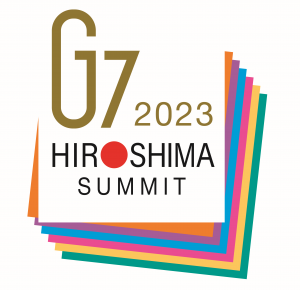The emergence of the Informals reflected in part the fading power of the Formals – the institutions of the UN, the IMF, the World Bank and some others – and the intent to advance collective global governance policymaking . A more cynical view would suggest that these major western powers – the US, UK, and Europeans, not to mention Japan, sought to resolve growing global economic problems in the 1970s impacting them and more broadly the global economy without interference of others in the global economy – newly emerging market economies and more broadly the Global South. As I wrote in the early paragraphs of the draft chapter:
“Beyond just a question of representation, however, there is the continuing question, quite crucial, of the effectiveness of all these Informals.” As I concluded: “… their structures and processes have not led to the desired policy leadership as was hoped by early leaders.
There are various explanations, I believe, in undermining the success of First Informal – and helping to explain the current weakness of it and all the Informals. These ‘forces’ are, I believe, hobbling global governance progress in the current global order. One element, of course, is the lack of broad representation – this is after all just the G7. But there is more. Recently the United States has focused the G7 on like-mindedness and beyond that, at least in a US view – expressed in part by the statement of Antony Blinken, the Secretary of State, that the G7 is:
… the steering committee of the world’s advanced democracies, demonstrating unprecedented unity of purpose and unity of action on the issues that are defining the 21st century.
This US “steering committee” focus on the G7 has arisen at the same time, or in part because of, the return of geopolitics, particularly the growing rivalry and competition between the US and China in international relations. While the US-China rivalry does create tensions in the G7, still these tensions are nothing like that in the G20 with the mix of developed and developing members and most obviously including the US and China and in fact the US and Russia.
The US-Russia tension speaks to the growing global disorder erupting with various regional conflicts. There is nothing more dramatic than in the past two years and more of the Russia-Ukraine war in the heart of Europe. Then there is a more recent but no less dramatic war between Hamas and Israel in the Mideast that is spreading regionally.
As described by the President and the CEO of the International Crisis Group (ICG), Ero Comfort and the ICG Executive Vice President, Richard Atwood (2024) in a recent FP post:
Worldwide, diplomatic efforts to end fighting are failing. More leaders are pursuing their ends militarily. More believe they can get away with it. … So, what is going wrong? The problem is not primarily about the practice of mediation or the diplomats involved. Rather, it lies in global politics. In a moment of flux, constraints on the use of force—even for conquest and ethnic cleansing—are crumbling.
And then there is uncertainty of US commitment to the multilateral order as we watch the possible return of a second Trump presidency. Even without that the current Biden Administration has too often exhibited a tepid commitment to a multilateral order.
All these forces have weakened the actions of the Informals and the broader multilateral initiatives. Multilateral weakness is a threat to the current global order and raises the prospects of growing harmful global disorder.
This Post first appeared at Alan’s Newsletter, a Substack Post – https://substack.com/@globalsummitryproject
Image Credit – Japan’s Office of the Prime Minister
 Yup, a little late in the weekend it is. But then for some Monday is a holiday. Mea culpa, but I was deep into completing a draft chapter for a yet to appear volume – which, in fact is scheduled to be released by 2025. The publication year, by the way, is important. My chapter will be part of a planned edited volume by Edward Elgar Publishing. There will be many chapters, so I am told, that will review and analyze the G7. It will do so on the 50th anniversary of the initiation of the G7 Leaders Summit. Yup, Rambouillet, the acknowledged first G7 Leaders Summit – it was actually, the G6 – France, Germany, Italy, Japan, UK, US at that moment in time – met in 1975. All the chapters, I suspect, will cover aspects of this ‘First Informal’, the G7, and, I suspect, the other Informals as well – that is the G20 and the BRICS.
Yup, a little late in the weekend it is. But then for some Monday is a holiday. Mea culpa, but I was deep into completing a draft chapter for a yet to appear volume – which, in fact is scheduled to be released by 2025. The publication year, by the way, is important. My chapter will be part of a planned edited volume by Edward Elgar Publishing. There will be many chapters, so I am told, that will review and analyze the G7. It will do so on the 50th anniversary of the initiation of the G7 Leaders Summit. Yup, Rambouillet, the acknowledged first G7 Leaders Summit – it was actually, the G6 – France, Germany, Italy, Japan, UK, US at that moment in time – met in 1975. All the chapters, I suspect, will cover aspects of this ‘First Informal’, the G7, and, I suspect, the other Informals as well – that is the G20 and the BRICS.
